BEACON Toolkit for Local Climate Change Mitigation
by Matías Mesa García (FC.ID – FCUL); Co-Autoren: Tobias Bernstein (adelphi), Gil Penha-Lopes (FC.ID – FCUL),
The EUKI Project BEACON has put together a toolkit for climate change mitigation. The Climate Change Mitigation Kit (CCM Kit) aims to provide municipal actors and local authorities the guidance to set priorities, ideas for mitigation actions, and the metrics to measure them.
The CCM Kit is comprised of three parts, a Roadmap for local Climate Change Mitigation, an Indicators Menu for Local Climate Change Mitigation, and an accompanying document called The Guidelines.
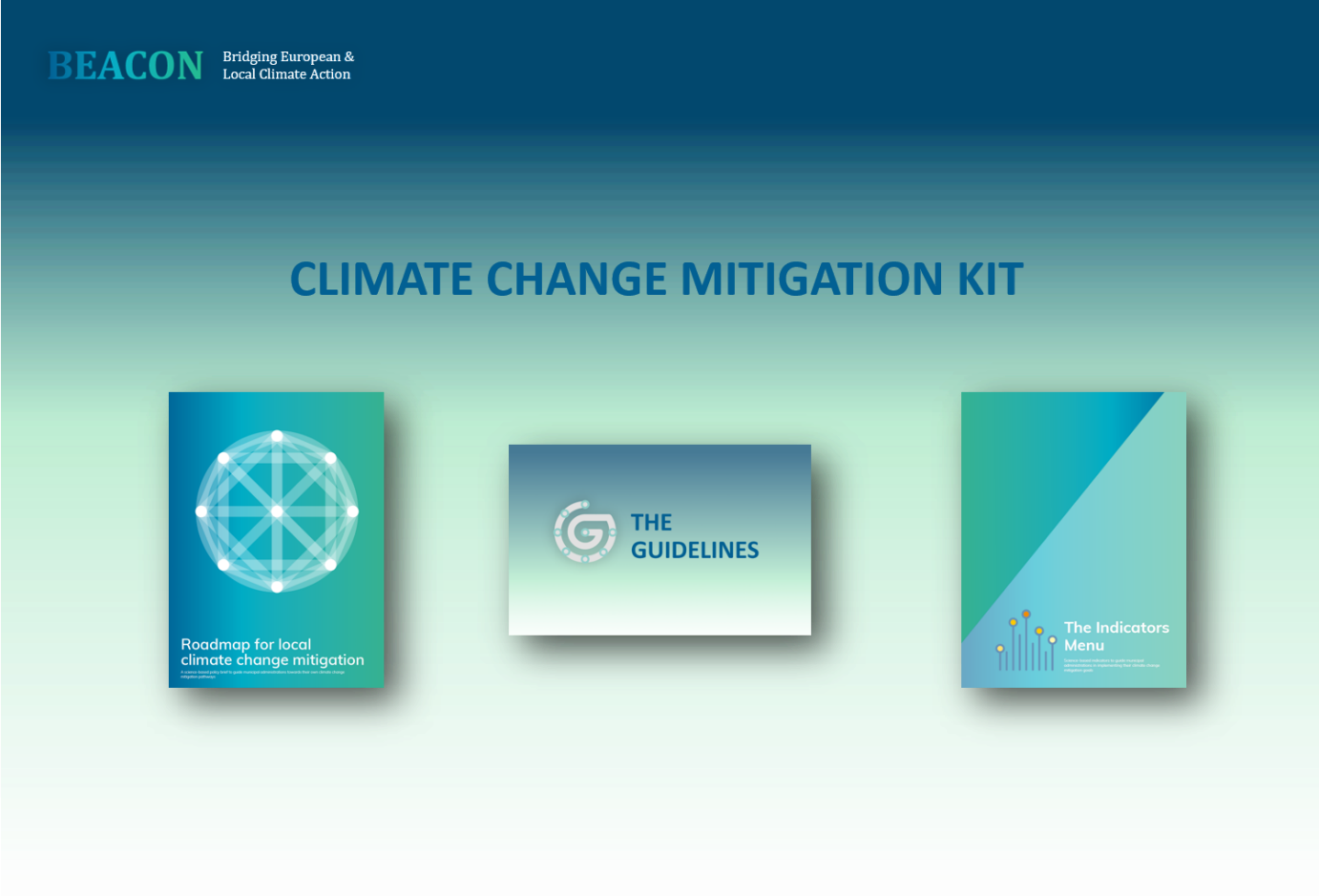
Roadmap for local Climate Change Mitigation
This science-based compilation of policy briefs provides a comprehensive “roadmap” for climate action at the municipal level and is designed for European and other OECD countries. It is a guide to help local governments on their climate action pathways, which can be adapted to their local contexts. It addresses the existing gap between what science suggests and what would be feasible by local government actors. In addition, the Roadmap aims to promote understanding of the scope and cross-sectoral nature of the climate change challenge. It highlights existing linkages between various local actions, projects, and other related municipal climate change initiatives, with the goal of reducing the burden on municipalities and increasing effectiveness and efficiency.
Download the CCM-Kit in your preferred language:
Further information
Want to kickstart climate change mitigation measures in your municipality?
Please contact beacon@adelphi.de for further information on implementing the toolkit.
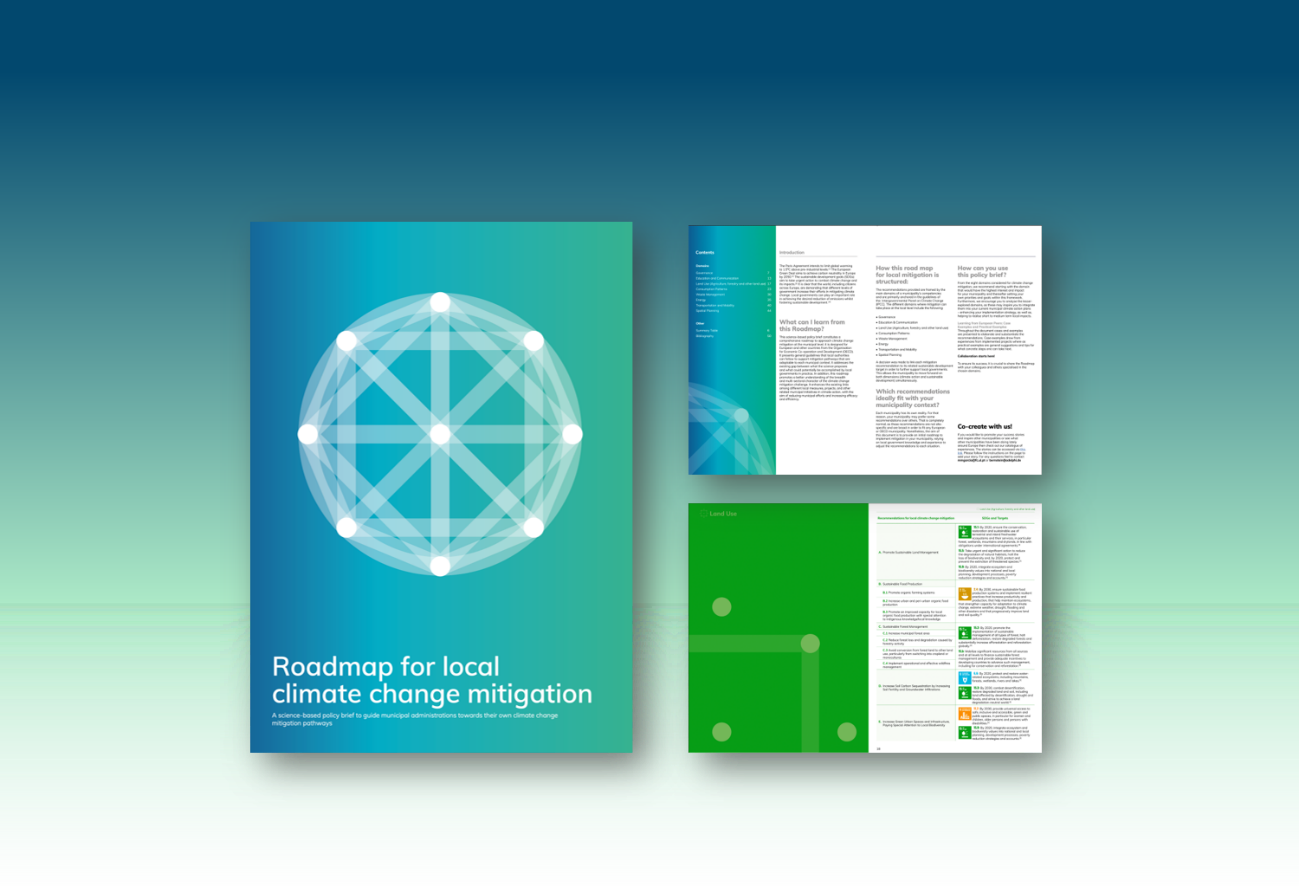
The selected action areas are: Governance, Education and Communication, Land Use (Agriculture, Forestry and Other Land Use), Consumption Patterns, Waste Management, Energy, Transportation and Mobility, Spatial and Urban Planning.
The recommendations can be integrated into a municipality’s core competency areas and are mainly anchored in IPCC guidelines. Each recommendation is also linked to a relevant Sustainable Development Goal. This allows the municipality to move forward on both dimensions (climate action and sustainable development) simultaneously.
Throughout the Roadmap, case examples and practical examples are provided to flesh out and support the recommendations. The case examples draw on experiences from implemented projects around Europe, while practical examples offer general suggestions and tips for concrete next steps.
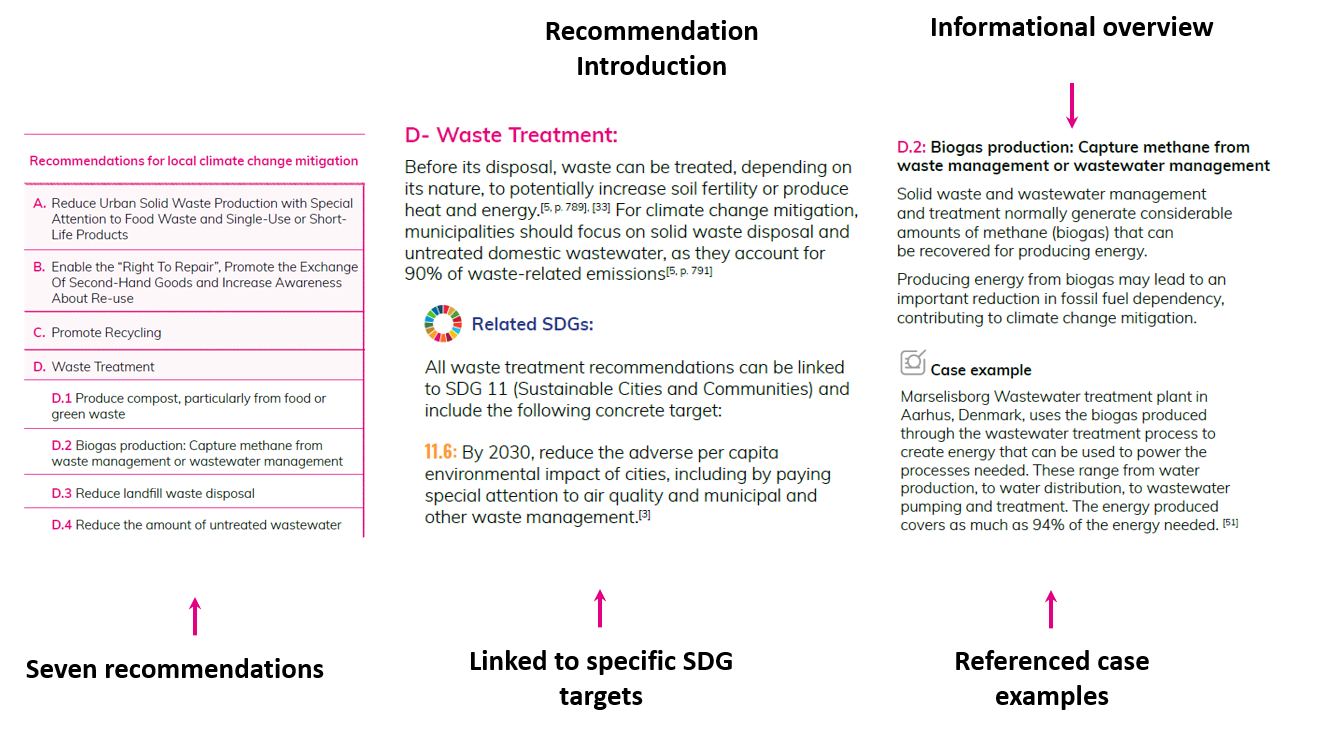
Indicators Menu for Local Climate Change Mitigation
Indicators are essential for measuring the implementation of climate change mitigation actions. Quantifying measures enables the user to have an objective measuring stick for progress that can be used to further raise ambition, fulfill political targets, qualify for funding schemes, and more effectively communicate CCM achievements. To this end, the Indicators Menu for Local Climate Change Mitigation was developed to help municipalities better quantify their CCM goals.
Drawing on a wide variety of sources, the Indicators Menu provides a list of 140 distinct indicators. Of these 140, 44 were selected by experts to be enriched with nationally specified information on funding opportunities related to the individual indicators and data resources to help measure them.
The Indicators Menu thereby consists of two parts, an easy to navigate document providing an overview of the chosen 44, which provides an overview of selected key information pertaining to them and a larger excel database which has the specifics, links, and further information and which also includes the other 100 indicators. The selected action areas in the Indicators Menu correspond to those in the Roadmap and each indicator is also filed under a recommendation mirrored in the Roadmap. For information on the recommendations please reference the Roadmap.
The indicators are intended to serve as an inspiration and are not prescriptive, they can be adjusted and amended to fit local and national contexts. Their implementation and usefulness should be seen in the context of the wider CCM Kit and the planning steps as outlined in the Guidelines.
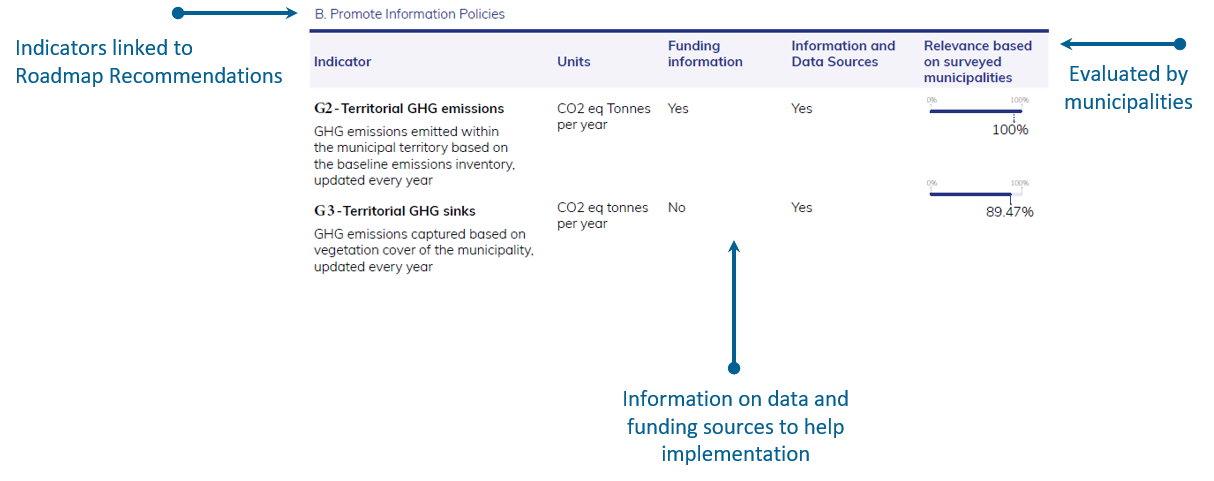
The Guidelines
The final part of the CCM Kit is the “Guidelines”. This part does not provide new content on its own but serves as an accompanying piece for the implementation of the Kit. The first section of the Guidelines also introduces the contents, purpose, and possible applications of the Kit and is therefore a good starting point when wanting to know more about its background and usefulness.
The implementation part of the Guidelines is divided into four steps: Map, Structure, Shape, and Implement. The first step helps municipalities get an overview of their current mitigation efforts. Structuring then aids them in adapting their ideas to the framework of the CCM Kit. The third step, Shape, guides municipalities in shaping their next steps for climate action by utilising the Roadmap to get inspired for new ideas. A final step, Implement, helps create a plan to track and monitor the chosen actions, in part using the indicators, to ensure long-term success.
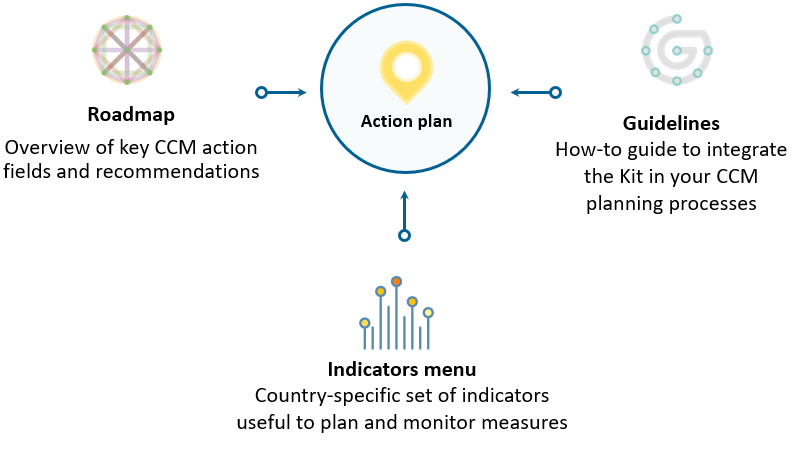
The different language versions would not have been possible without the dedicated support of the BEACON project partners at:
Centre for Renewable Energy Sources and Saving (CRES), Energy Cities, Energy Cities Romania (OER), FCiências.ID – University of Lisbon, National Trust Ecofund Bulgaria (NTEF), SEVEn, and the Association of Municipalities Polish Network (PNEC)
